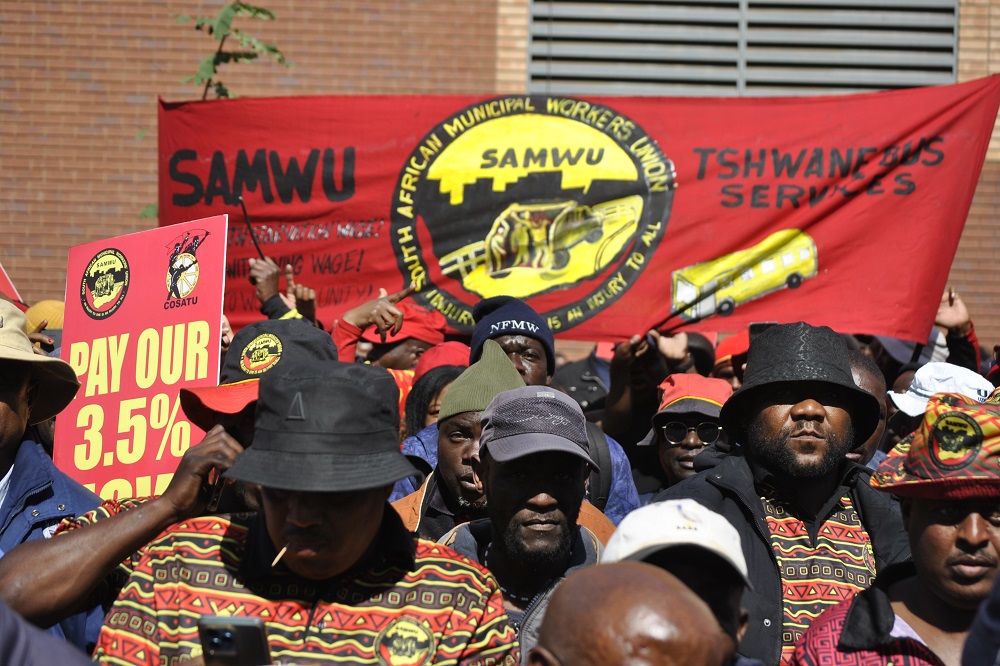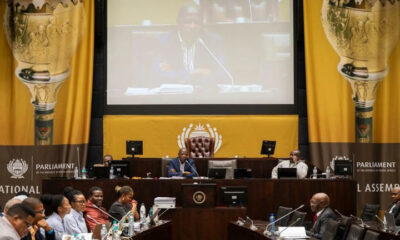News
Samwu blasts Tshwane councillors over salary hike while workers struggle

A city divided: workers demand fairness as councillors pad their pay
The storm brewing in Tshwane isn’t just about numbers on a payslip, it’s about principle. This week, the South African Municipal Workers Union (Samwu) lashed out at the City of Tshwane council after almost every councillor, save for one, voted in favour of a 5% salary increase for themselves, retroactively backdated to July 2024.
For ordinary workers who’ve been battling stagnant wages, rising food and transport costs, and even job losses, the decision feels like a slap in the face. Samwu’s Tshwane regional secretary, Donald Monakhisi, minced no words: “The resolution exposes the hypocrisy and blatant disregard for the sacrifices of frontline municipal employees who keep our communities running under difficult conditions.”
Workers dismissed, councillors rewarded
Samwu has been locked in wage disputes with the city, demanding a modest 3.5%–5.4% increase for workers. Instead, 43 employees who stood up for their rights were dismissed, what the union calls outright victimisation. Now, as those families grapple with the consequences, politicians are rewarding themselves.
“The city cannot continue to enrich politicians while the backbone of service deliverythe workersare being pushed deeper into poverty,” Monakhisi said, calling for the immediate reversal of the councillors’ pay hike and the reinstatement of the fired workers.
“In what world do you reward failure?”
Not everyone on the council backed the decision. Republican Conference councillor Lex Middelberg stood alone in opposition, describing the move as “shamelessly grabby” and “in bad taste.”
Middelberg pointed to damning auditor-general reports and The Africa Report’s ranking of Tshwane as one of the worst-run metros in South Africa. “In what world do you reward and incentivise failure?” he asked.
His criticism didn’t stop there. With the city’s payment recovery rate for service charges still hovering at “Covid-era levels” of around 70%, Middelberg warned that ratepayers are being squeezed to fund political perks while service delivery remains broken. “It is not acceptable to take from people who themselves cannot meet the demands of the rising cost of living to make our own lives more comfortable,” he said.
Public backlash: anger on the ground
On social media, residents have echoed Samwu’s outrage. Many point to potholes, electricity outages, and refuse collection delays as proof that councillors have no business awarding themselves increases. “We pay more, get less, and now they give themselves a raise? Shameful,” one Joburg-based user posted on X.
Others are questioning whether the city has its priorities straight, with one Facebook comment reading: “Workers dismissed, ratepayers abandoned, services collapsing yet councillors celebrate a pay hike. It’s beyond tone-deaf.”
Bigger picture: trust deficit grows
The row over salaries is more than a labour dispute, it speaks to a growing trust deficit between local government and the communities it is meant to serve. With service delivery failures becoming the norm and ratepayers losing faith, the decision risks widening the gap between leadership and the people on the ground.
As Monakhisi put it: “It’s unacceptable that elected representatives have chosen to prioritise their pockets as workers endure rising costs of living, unsafe working environments, and wage stagnation.”
The real test now is whether the council will reconsider or whether Tshwane’s residents and workers will once again be left to carry the cost of political decisions.
{Source: The Citizen}
Follow Joburg ETC on Facebook, Twitter , TikTok and Instagram
For more News in Johannesburg, visit joburgetc.com


























